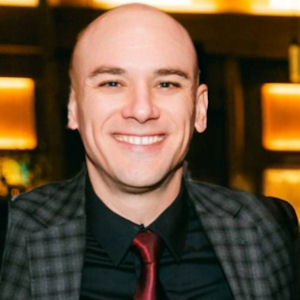Anxiety and addiction are two conditions that often appear together. Many people who struggle with anxiety also face challenges with substance use or addiction. The experience of living with both can be confusing and overwhelming, especially when symptoms seem to feed off each other.
Understanding how anxiety and addiction interact is important for individuals and families. Each condition affects the brain, emotions, and behavior in unique ways. When they occur together, the relationship can become more complicated.
At 449 Recovery, we see firsthand how anxiety and substance use disorders can reinforce each other. Our dual diagnosis treatment approach addresses both conditions simultaneously, recognizing that treating one without the other often leads to incomplete recovery. This article explains what you need to know about these co-occurring disorders and how integrated treatment works.

Anxiety disorders involve excessive worry, fear, or nervousness that interferes with daily activities like work, school, or relationships. Common types include generalized anxiety disorder (persistent worry about many things), panic disorder (sudden episodes of intense fear), and social anxiety disorder (fear of being judged in social situations).
Addiction, also called substance use disorder, happens when someone cannot stop using alcohol or drugs despite negative consequences. The person continues using substances even when it damages their health, relationships, or responsibilities.
These conditions have a bidirectional relationship; anxiety can lead to substance use, and substance use can worsen anxiety.
The connection works in several ways:
- Self-medication: People use alcohol or drugs to temporarily reduce anxiety symptoms
- Shared brain pathways: Both conditions affect similar areas of the brain that control stress and reward
- Withdrawal effects: Stopping substance use can trigger or intensify anxiety symptoms
Why Co-Occurring Disorders Happen
A dual diagnosis means having both a mental health condition and a substance use disorder at the same time. This combination is more common than many people realize.
The self-medication hypothesis explains one pathway to dual diagnosis. Someone might drink alcohol to feel less nervous at parties or use marijuana to quiet racing thoughts. While substances may provide temporary relief, they often make anxiety worse over time.
Genetics play a significant role, as these factors affect how the brain responds to stress and processes rewards.
Environmental factors also contribute, including:
- Trauma exposure: Childhood abuse, neglect, or witnessing violence increases risk for both conditions
- Chronic stress: Ongoing financial problems, relationship conflicts, or work pressure
- Social influences: Peer pressure, family substance use patterns, or cultural attitudes toward drinking and drug use
Contact 449 Recovery Today!
Find The Help You Need By Reaching Out To Us Today!
Most Common Anxiety Disorders Linked To Substance Abuse
While addiction is linked to most anxiety disorders, the following are among the most common:
Generalized anxiety disorder involves persistent, excessive worry about everyday situations. People with this condition often feel restless, have trouble concentrating, and experience muscle tension or sleep problems. Many use substances like alcohol, prescription sedatives, or cannabis to manage their constant worry.
Social anxiety disorder causes intense fear of social situations where the person might be judged or embarrassed. This goes beyond normal shyness; it can prevent someone from working, going to school, or maintaining relationships. People with social anxiety commonly use alcohol before social events to feel more relaxed. The temporary confidence boost from substances can create a dangerous pattern of dependence.
Panic disorder involves sudden episodes of intense fear called panic attacks. These attacks include physical symptoms like racing heart, sweating, shortness of breath, and feelings of losing control or dying. Some people use alcohol, benzodiazepines, or other sedatives to prevent or stop panic attacks. However, substance use often makes panic disorder worse over time, especially during withdrawal periods when anxiety symptoms can intensify.
Signs And Symptoms Of Anxiety Substance Abuse
Recognizing the signs of co-occurring anxiety and substance abuse helps identify when professional help is needed. Symptoms often overlap and can reinforce each other.
Physical symptoms include:
- Trembling or shaking: May worsen during substance withdrawal
- Racing heart: Can occur during anxiety episodes or substance use
- Sleep problems: Difficulty falling asleep or staying asleep
- Headaches and muscle tension: Common in both anxiety and substance withdrawal
Behavioral changes often include:
- Avoiding situations: Skipping work, social events, or responsibilities
- Increasing substance use: Using more alcohol or drugs to manage anxiety
- Secretive behavior: Hiding substance use from family or friends
- Neglecting responsibilities: Missing deadlines, appointments, or commitments
Emotional symptoms can involve:
- Persistent worry: Excessive concern about future events
- Mood swings: Rapid changes between anxiety, irritability, and temporary relief
- Guilt or shame: Feeling bad about substance use but unable to stop
Risk Factors For Addiction And Anxiety Disorder
Several factors increase the likelihood of developing both anxiety and substance use disorders. Understanding these risk factors helps explain why some people are more vulnerable.
- Genetic predisposition: Individuals can inherit a higher susceptibility to both conditions from their family members. This genetic link means that someone with a close relative who has an anxiety or substance use disorder is at a significantly increased risk themselves.
- Trauma history: Experiencing a traumatic event, especially during childhood, can profoundly alter the brain’s stress response system. This dysregulation often leads to anxiety symptoms, and many individuals may then turn to substances as a way to cope with the resulting psychological distress.
- Early substance exposure: Using drugs or alcohol during adolescence can interfere with the brain’s critical development, particularly in regions responsible for decision-making and impulse control. This disruption not only increases the risk of addiction but can also trigger or worsen underlying anxiety disorders.
- Environmental stressors: Chronic exposure to stressful environments, such as those involving financial instability, unsafe housing, or high-pressure work, can take a significant toll on mental health. To manage these persistent feelings of being overwhelmed, some people may use substances for temporary relief, which can initiate a cycle of dependence and heightened anxiety.

Effective Approaches To Dual Diagnosis Treatment
Integrated treatment addresses both anxiety and addiction simultaneously rather than treating each condition separately. This approach produces better outcomes because the conditions often influence each other.
Cognitive behavioral therapy (CBT) helps people identify and change unhelpful thought patterns and behaviors related to both anxiety and substance use. In dual diagnosis treatment, CBT teaches clients to recognize triggers for both conditions and develop healthier coping strategies.
For example, someone might learn to challenge anxious thoughts (“Everyone will judge me”) while also identifying situations where they typically drink to cope. The therapy combines anxiety management techniques with substance use prevention skills.
Dialectical behavior therapy (DBT) focuses on emotional regulation and distress tolerance skills. This approach is particularly helpful for people who use substances to manage intense anxiety or emotional pain.
DBT teaches four main skill areas:
- Mindfulness: Staying present instead of worrying about the future
- Distress tolerance: Managing difficult emotions without using substances
- Emotion regulation: Understanding and controlling emotional responses
- Interpersonal effectiveness: Communicating needs and maintaining relationships
Certain medications can help manage anxiety symptoms without creating new addiction problems. Selective serotonin reuptake inhibitors (SSRIs) like sertraline and paroxetine treat anxiety disorders with low abuse potential.
For substance use disorders, medications like naltrexone can reduce cravings for alcohol or opioids. Combining these approaches allows people to manage both conditions safely.
How To Choose Safe Outpatient Care
Finding quality dual diagnosis treatment requires research and careful consideration. Not all programs have the expertise to handle co-occurring disorders effectively. Here are some things to consider when seeking dual diagnosis care:
- Accreditation and licensing: Look for facilities accredited by organizations like the Commission on Accreditation of Rehabilitation Facilities (CARF). State licensing ensures the program meets basic safety and quality standards.
- Evidence-based therapies: Effective programs use treatments proven by research, such as CBT, DBT, and motivational interviewing. Ask specifically about dual diagnosis treatment experience.
- Individualized treatment planning: Quality programs assess each person’s unique situation and create customized treatment plans. Cookie-cutter approaches rarely work for complex dual diagnosis cases.
449 Recovery holds CARF accreditation and specializes in dual diagnosis treatment for adults. Our clinical team uses evidence-based therapies specifically designed for people with both anxiety and substance use disorders.

Moving Forward With Integrated Recovery
Recovery from co-occurring anxiety and addiction is possible with appropriate treatment. Integrated approaches that address both conditions together produce better long-term outcomes than treating each problem separately.
Outpatient treatment allows people to receive intensive therapy and support while maintaining work, school, or family responsibilities. This flexibility helps individuals practice new coping skills in real-world situations.
At 449 Recovery, we understand that anxiety and addiction recovery requires specialized expertise and compassionate care. Our person-centered approach helps clients build the skills and confidence needed for lasting recovery from both conditions.
Frequently Asked Questions About Anxiety And Addiction
Many people with anxiety disorders use alcohol or drugs to temporarily reduce uncomfortable symptoms like worry, panic, or social fear. This self-medication pattern can develop into physical dependence and addiction over time.
Yes, integrated treatment that addresses both conditions simultaneously is often more effective than treating each problem separately. Both conditions can be managed successfully with appropriate therapy and support.
Non-addictive medications like SSRIs (sertraline, paroxetine) and buspirone can treat anxiety without creating new addiction problems. Medication choices depend on individual medical history and current symptoms.
Treatment duration varies based on symptom severity and individual progress, but most people benefit from several months to a year of structured outpatient care. Recovery is an ongoing process that continues beyond formal treatment.
Most insurance plans cover dual diagnosis treatment, including therapy, medication management, and outpatient programs. Coverage details vary by plan, so verification is recommended before starting treatment.
If you or a loved one is struggling with anxiety and addiction, 449 Recovery offers comprehensive dual diagnosis treatment in Mission Viejo, CA. Our CARF-accredited programs combine evidence-based therapies with compassionate care to address both conditions simultaneously. Contact us today for a confidential consultation or to begin the admissions process.
Dr. Sharif is a Licensed Marriage and Family Therapist who joined 449 Recovery in 2020 and oversees clinical operations as the Chief Clinical Officer. He earned his B.A. in Psychology and M.S. in Clinical Psychology from Vanguard University and completed his Doctor of Psychology from California School of Professional Psychology. Since 2011, Dr. Sharif has been dedicated to helping individuals, couples, and families heal from co-occurring disorders, including mental health, relational, and substance use challenges. He has led workshops on family dynamics, attachment injuries, spirituality in sobriety, and the impact of trauma on relationships.





